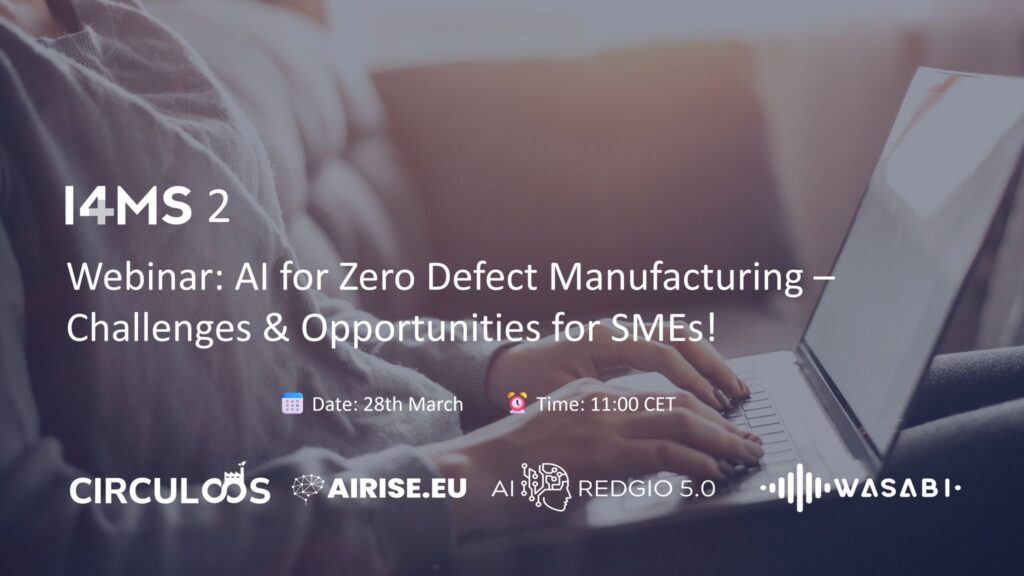
In today’s manufacturing landscape, maintaining high-quality standards while staying competitive is more important than ever. Small and medium-sized enterprises (SMEs) face growing challenges in reducing defects, optimising production, and adopting new technologies. Artificial Intelligence (AI) is offering practical solutions for quality control, defect detection, and predictive maintenance. But how can SMEs apply AI effectively in their manufacturing processes?
Join I4MS2 projects on March 28th at 11:00 CET for a webinar on AI for Zero Defect Manufacturing – Challenges & Opportunities for SMEs.
Industry experts will present real-world applications of AI in manufacturing, sharing insights on how SMEs can implement cost-effective solutions to improve quality and efficiency.
Why You Should Attend
- Learn how AI-driven quality control solutions can improve production processes.
- Gain practical insights into cost-effective AI adoption for defect detection and process optimization.
- Hear from SCAMM and REINOVA, two SMEs successfully integrating AI into their operations.
- Take part in an interactive roundtable discussion with industry experts on key challenges and future opportunities.
Featured Use Cases
- SCAMM: AI-powered Machine Vision system for defect detection in sheet metal processing, linking quality control to predictive insights.
- REINOVA: Large Language Model (LLM)-based assistant for testing automotive components, ensuring performance and reliability.
It is targeting manufacturing SMEs, industry professionals, AI researchers, and innovation leaders looking to adopt AI-driven solutions for production efficiency.
I4MS2: Supporting Digital Transformation in Manufacturing
This webinar is part of the I4MS2 initiative, a group of European-funded projects helping SMEs adopt digital technologies. Projects like CIRCULOOS, WASABI, AI REDGIO 5.0, and AIRISE focus on enhancing sustainability, resilience, and competitiveness in the manufacturing sector.
By supporting AI adoption, I4MS2 helps businesses improve efficiency and reduce environmental impact.